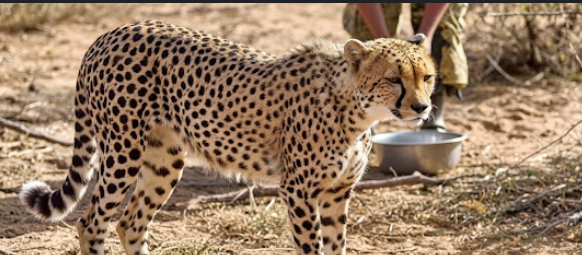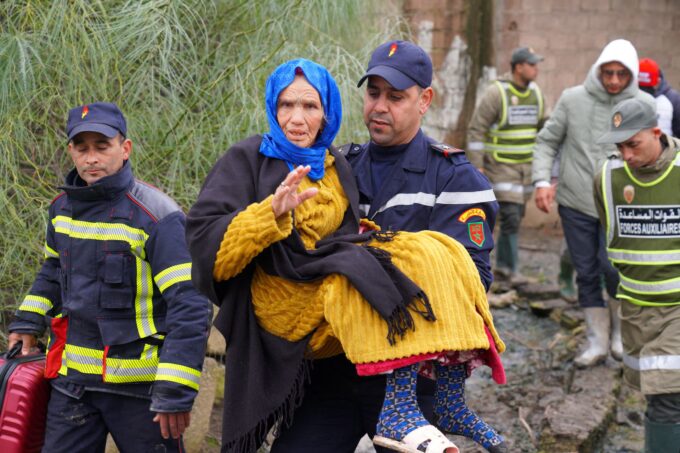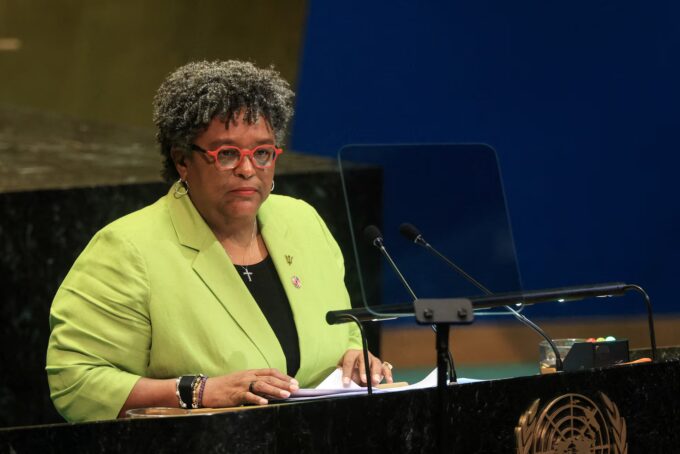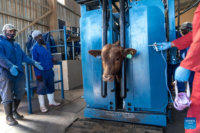In a remote village in northern Kenya’s Wajir County, a story of compassion and courage has captured hearts across the country. A Somali-speaking pastoralist family has revealed how they adopted and raised a cheetah cub after finding it lying beside its dead mother, transforming the wild animal into a beloved member of their household.
For more than two years, the cheetah one of Africa’s most endangered predators lived among humans, sharing in their daily lives, meals, and even their affection. What began as an act of mercy soon turned into an extraordinary bond between people and wildlife in one of the harshest regions of Kenya.
“When we found the cub, many people immediately told us to get rid of it so it wouldn’t harm livestock,” recalled Bisharo Abdirahman Omar, one of the family members who helped care for the young animal. “But that didn’t seem right. It was helpless and scared. We just couldn’t abandon it.”
The community’s reaction was understandable. In Wajir County, where most residents are nomadic herders, predators such as cheetahs, lions, leopards, and hyenas are often seen as enemies. They pose constant threats to goats, sheep, and camels — the foundation of local livelihoods. For many, the idea of raising a cheetah was not only shocking but dangerous.
However, 45-year-old father of ten, Rashid Abdi Hussein, saw things differently. “We knew it wouldn’t benefit us in any way like livestock would,” he said. “But people are always killing these animals. I thought maybe it’s time someone tried to save them instead. We wanted to do something different.”
The family’s compassion came with challenges. The cub was restless and aggressive at first, but patience, care, and consistent feeding slowly tamed it. “At the beginning, the animal was troublesome,” said Hussein. “But in time, it became calm and friendly — just like one of our children.”
For months, the family fed the cheetah milk using a syringe until it was old enough to eat meat. “Since the day I rescued it, I’ve slaughtered around 15 sheep to feed the cheetah,” Hussein explained. “It was a big sacrifice for us, but it was worth it.”
The cheetah became inseparable from the family, following them around their compound and playing with their children. Neighbours who had initially feared the animal began to admire the family’s courage and kindness.
But the story also highlights the growing challenges facing Kenya’s wildlife. According to the Northeastern Conservancy Association (NECA), cheetahs and other wild animals in northern Kenya are facing an increasing threat from poaching, habitat loss, and human-wildlife conflict. “Cheetahs are currently facing a grave crisis,” said Sharmaarke Mohamed, NECA’s head of conservation. “This young cub was most likely orphaned after its mother was killed or poisoned — a fate that has become far too common in this region.”
The Cheetah Conservation Fund estimates that between 200 and 300 cheetah cubs are trafficked out of the Horn of Africa every year, many passing through northern Kenya, eastern Ethiopia, and Somalia before being smuggled into Yemen and sold illegally as exotic pets in the Gulf States. The high demand for these animals as status symbols has fueled a lucrative black market that is devastating wild cheetah populations.
Despite receiving offers from traffickers and opportunistic buyers, the family refused to sell the cub. “People offered us money — some even offered up to 20,000 Kenyan shillings, or said we could trade it for goats,” Omar revealed. “But we said no. The cheetah had become one of us. It was family.”
The Kenya Wildlife Service (KWS) later learned of the family’s act of kindness and commended them for their compassion. However, KWS also reminded the public that keeping wild animals as pets is against the law, emphasizing that even well-intentioned acts can disrupt wildlife conservation efforts.
“We deeply appreciate the Good Samaritan’s compassion,” KWS said in a statement. “But we remind all Kenyans that true coexistence means protecting wildlife in their natural habitats, not domestic spaces. The cheetah will be safely relocated to a wildlife conservancy where it can live freely and contribute to conservation efforts.”
For Hussein and his family, letting go of the cheetah was emotional. “It felt like we were losing a child,” he said softly. “We loved that animal. It had become a part of us. But we knew it was for the best — that it needed to live in the wild, where it belongs.”
The family’s story has resonated widely across Kenya, serving as a powerful symbol of harmony between people and wildlife. It also underscores the delicate balance between compassion and conservation and the hope that with empathy, education, and stronger protections, humans and animals can coexist peacefully even in the most challenging environments.
In a region where predators are often hunted and feared, one family’s extraordinary decision to raise a cheetah has shown that kindness, not cruelty, can shape the future of wildlife conservation in Africa.














Leave a comment